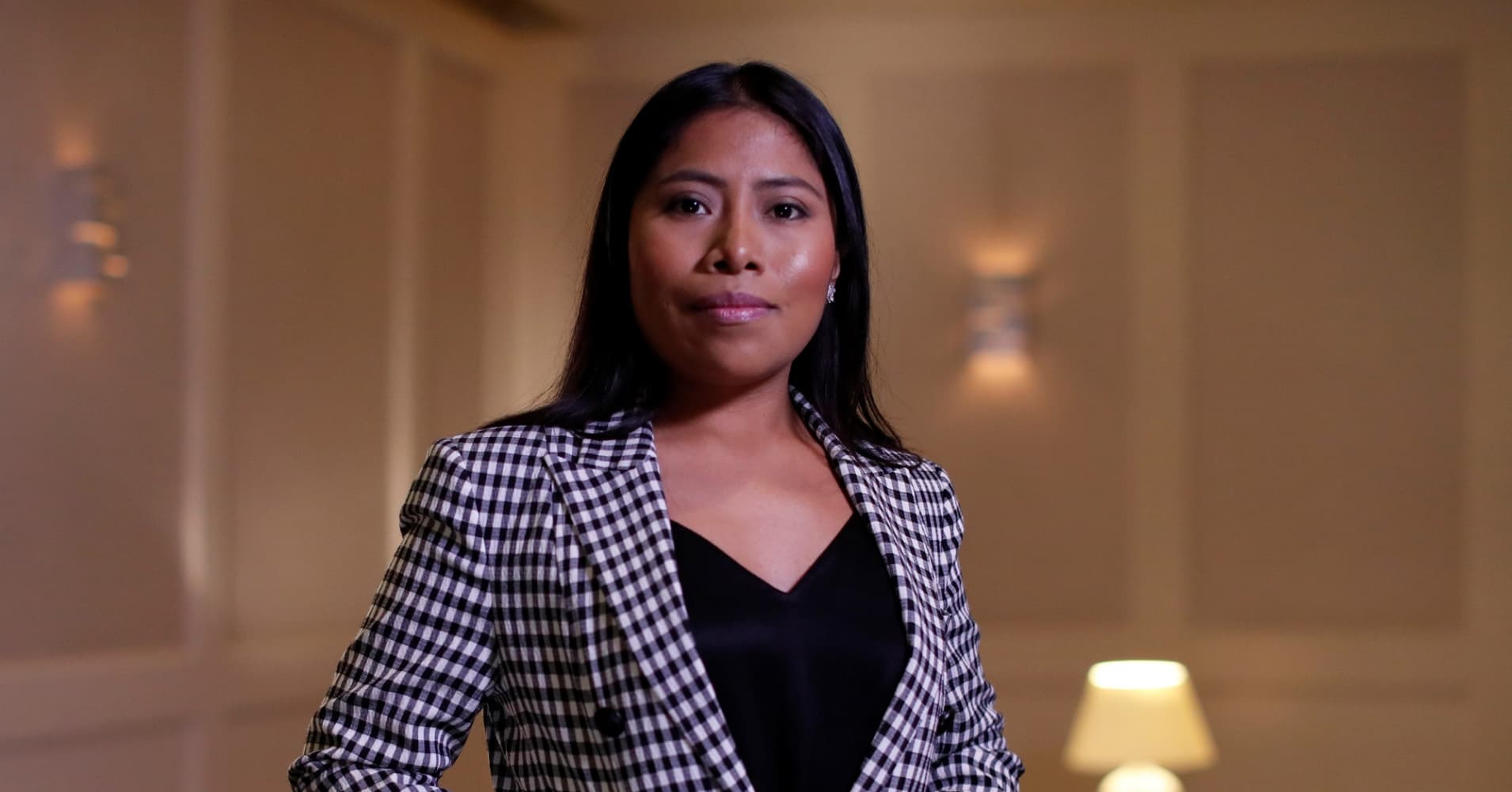
When 25-year-old "Roma" star Yalitza Aparicio walks the red carpet before the Academy Awards on Sunday, she will already have made history.
She's the second Mexican actress and the first indigenous actress nominated for the Academy Award for Best Actress. In December, she became the first woman of indigenous descent to appear on the cover of Vogue Mexico in the magazine's 20-year history. Should she win the Oscar on Sunday, she'll make history again.
But when Aparicio auditioned for the film in 2016, her professional goals were different.
Aparicio earned her teaching degree from teachers' college Escuela Normal Experimental Presidente Lázaro Cárdenas in 2016. In an interview with the Los Angeles Times, she explained why her decision to become a preschool teacher was so significant, saying she dreamed of helping a child, "really love what they do, and then when I meet him again, he says, 'Hello, Teacher, I'm a doctor,' or 'I'm an engineer. It would bring tears to my eyes to know that I was part of that process."
She says her identity as in indigenous woman also drove her decision to pursue teaching.
"People would tell me, 'Why do you study? One, you are a woman. Two, you don't have the right color. Three, your economic station doesn't help. You'll end up getting married and becoming a servant," Aparicio tells the Times. "I could stay in this jar where they say I belong, where they tell me, 'You can only be a servant,' that you can't aspire to more."
About a month after Aparicio graduated from teachers' college, acclaimed Mexican director Alfonso Cuarón was traveling across Mexico to cast the lead role in an autobiographical film about his childhood growing up in the Roma neighborhood of Mexico City in the 1970s. The film centers on a character named Cleo, based on Cuarón's real-life childhood housekeeper and nanny, Liboria "Libo" Rodrígue.
Aparicio had no intention of auditioning for the film when Cuarón came to Oaxaca to find the perfect actress to play Cleo. Her older sister, Edith, had been planning to audition for the role but because she was pregnant, urged Aparicio to consider auditioning instead.
During her audition, Aparicio, who hadn't seen any of Cuarón's films, used her mother, a domestic worker, as inspiration. When she learned she got the role, her mother was the first person she thought of. "At that moment, when he offered me the role, all I could think about was that it was an opportunity to make my mother proud," she tells The New York Times. "I assume my mom is even more proud at this moment."
Now, Aparicio hopes that film will encourage discussions about working conditions for domestic workers like her mother and her character, Cleo. "I do think that this role that Alfonso gave me, and his focus on my character in his film, has really turned attention to the plight of domestic workers and raised people's awareness that they need to be treated better and that they are due certain rights."
In December, Mexico's Supreme Court ruled that the country's more than 2 million housekeepers, gardeners, cooks and drivers qualified for social security, and many credit "Roma" — and Aparicio — with expanding the country's recent discussions on race and equality.
"In the end, this isn't so different from what I wanted to do," she tells The New York Times. "I realized that film can educate people of all ages, in a far-reaching way."
Like this story? Subscribe to CNBC Make It on YouTube!
Don't miss:
No comments:
Post a Comment